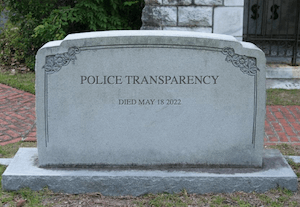HARRISBURG, Pa. (WHTM) -- With Congress working to pass the coined "big, beautiful bill," Republicans insist it won't cut programs like Medicaid and SNAP. But as abc27 News' Dennis Owens reports, that may not be entirely true.
Although Republican lawmakers insist that they are only looking to eliminate waste, fraud and abuse in programs intended for lower-income Americans, Pennsylvania's Independent Fiscal Office crunched the numbers on the budget proposal and came to a different conclusion.
"The federal government is pushing the cost down to the state," said Matthew Knittel, the director of Pennsylvania's Independent Fiscal Office.
Knittel analyzed several versions of the bill moving through D.C. to analyze its possible impact on Harrisburg.
"There are about 2 million residents on SNAP in Pennsylvania, about 15% of the population," said Knittel.
The federal government spent $4.5 billion in Pennsylvania alone last year. Congress wants states to shoulder more of the burden by increasing the state's percentage of administration costs from 50% to 75%. Right now, it costs $520 million to administer SNAP in Pennsylvania. The feds pay half ($260 million), and the state pays the other half, but if the bill passes, the feds' share would drop to $130 million, and PA's share would increase to $390 million.
"I think that's a done deal that they're going to pass that, and that's $130 million a year," said Knittel.
Governor Josh Shapiro estimates that 140,000 Pennsylvanians will lose access to these programs if the bill passes as is.
"Your children and your grandchildren and their children are going to be the ones paying the bill for these idiotic policies Donald Trump and his cronies are trying to ram through right now," said Shapiro.
Lawmakers are also tweaking a formula for SNAP reimbursement based on a state's error rate or overpayment of benefits. If the error rate is under 6%, a state receives full reimbursement, but if it goes over, penalties kick in.
The national average error rate is 11%. Before the pandemic, Pennsylvania's rate was 7%, and at one point it was 16%. On Monday evening, the Department of Human Services says the error rate has dropped to 10.76%, now below the national average for the first time since 2019.
"The Department of Human Services will continue our work to lower the SNAP Error Rate and effectively serve Pennsylvanians who rely on food assistance to support themselves and their families," said Brandon Cwalina, the Department of Human Services' spokesperson.
If enacted, new rules would cost the Commonwealth between $500 million and $1 billion. Supporters argue the changes would incentivize states to do a better job of getting it right.
"I think the federal government, what they want to do, is have the states have some skin in the game," said Knittel.
Skin in the game to some, a pound of punitive flesh to the Governor, who says the most vulnerable will pay the price.
"140,000 Pennsylvanians would lose access to food assistance," said Shapiro. "I have made very clear Pennsylvania can't backfill those cuts on Medicaid or on SNAP, and there's a real question as to whether or not we'd even be able to operate SNAP any longer."
Republicans counter that for too long, federal budgets have been too fat, oversight too lax, and belt-tightening can't come too soon.
The Independent Fiscal Office creates 5-year budget projections, and after crunching the numbers, the office believes that depending on what is passed in the bill, it could blow a sizeable hole in state budgeting.
BB_Federal_Policy_Uncertainty_Impacts_Budget_2025_06Download
All this comes as Pennsylvania's budget is due today on June 30; however, the budget has yet to be completed.
This is a developing story. abc27 news will keep you updated as we learn more.
